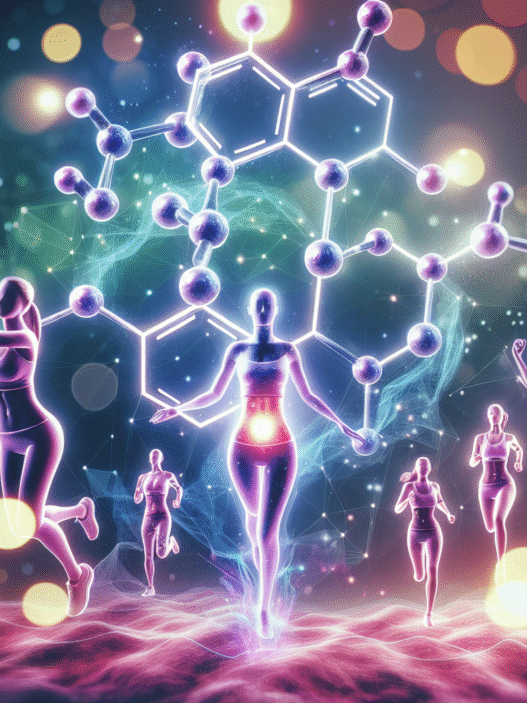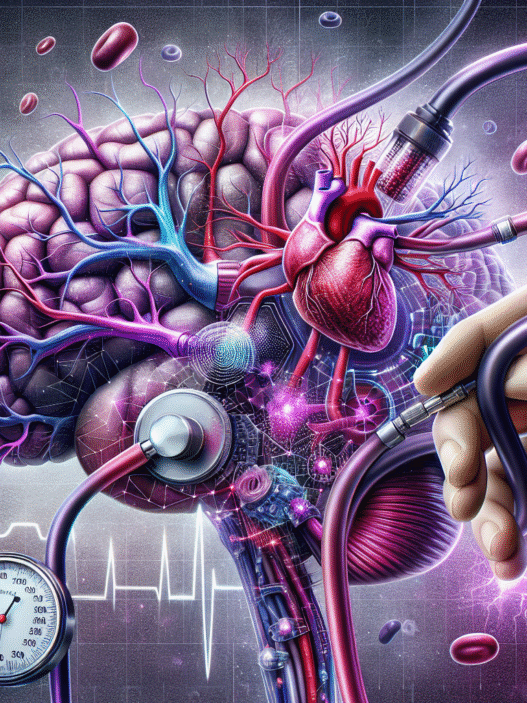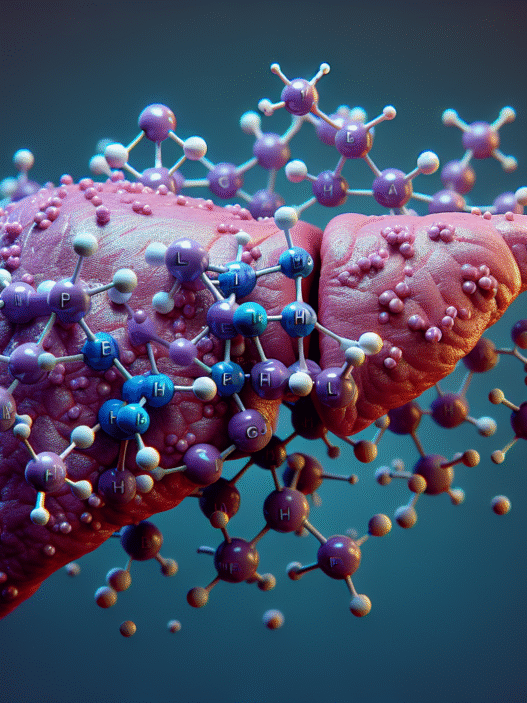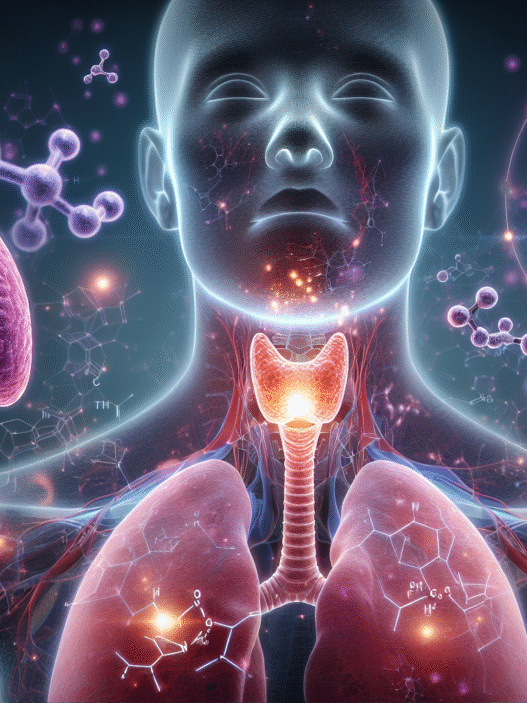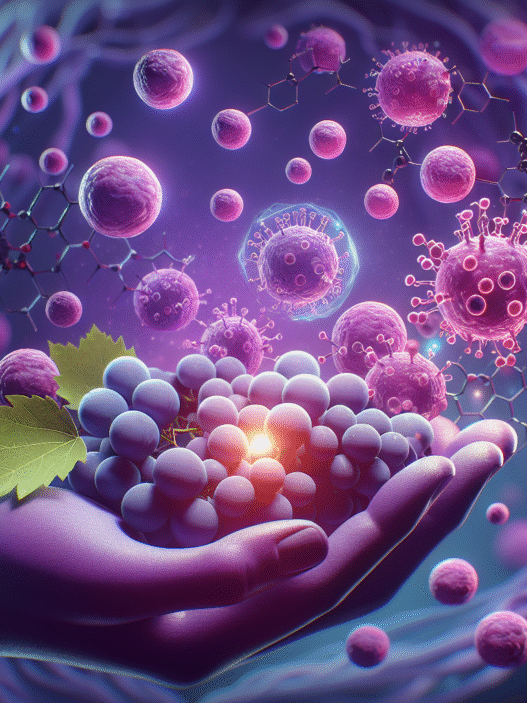Understanding Resveratrol
What is Resveratrol?
Resveratrol is a naturally occurring phytoalexin found in over 70 plant species. It is known for its antioxidant potential and anticancer properties, inhibiting various stages of carcinogenesis. This compound is typically synthesized in response to mechanical injuries, UV irradiation, and fungal attacks in plants. Resveratrol was isolated in 1940 and primarily obtained from sources such as Polygonum cuspidatum and grape skins and seeds. Its chemical structure consists of two phenol rings linked by an ethylene bridge. Bioactive effects, including anti-inflammatory, cardioprotective, neuroprotective, and vasorelaxant properties, have also been reported (NCBI).
Sources of Resveratrol
Resveratrol is not only present in various plants, but it is especially abundant in red wines and several foods. Grapes are particularly rich in resveratrol due to their natural response to fungal infections. The following table showcases some common sources of resveratrol:
| Source | Resveratrol Content (mg per 100g) |
|---|---|
| Red Grapes (with skin) | 0.2 – 0.3 |
| Red Wine | 0.3 – 1.0 |
| Peanuts | 0.01 – 0.26 |
| Dark Chocolate | 0.01 – 0.13 |
| Blueberries | 0.03 – 0.06 |
The consumption of foods rich in resveratrol may provide various health benefits, including potential contributions to hair growth. For more information on the broader effects of resveratrol, you can check our article on what are the benefits of taking resveratrol?.
Resveratrol Benefits for Hair Growth
Resveratrol has garnered attention for its potential benefits in promoting hair growth. Research on its effects suggests several key aspects, including its ability to stimulate hair growth, influence the transition of the hair cycle, and affect human hair follicles positively.
Promotion of Hair Growth
Topical application of resveratrol has significantly encouraged hair growth in studies involving C57BL/6 mice. The results indicated that resveratrol not only promoted hair growth but also stimulated the transition of hair cells from the telogen (resting) phase into the anagen (growing) phase. This acceleration suggests that hair can grow more quickly with resveratrol treatment (PubMed, NCBI).
The increased hair shaft length observed in human hair follicles further affirms the efficacy of resveratrol in promoting hair growth.
| Study Type | Findings |
|---|---|
| In vivo (Mice) | Promoted transition from telogen to anagen phase. |
| Ex vivo (Human Follicles) | Increased hair shaft length and delayed entry into catagen phase. |
Transition of Hair Cycle
The role of resveratrol in facilitating the transition of the hair growth cycle is notable. Research indicates that resveratrol treatment may lead to a faster progression through the hair cycle phases, particularly accelerating the transition into the anagen phase (NCBI). This is important for hair growth, as the anagen phase is when active growth occurs.
The ability of resveratrol to prolong the anagen phase could be beneficial for those seeking to enhance their hair’s growth rate and overall health.
Effect on Human Hair Follicles
Ex vivo experiments involving human hair follicles have illustrated that resveratrol promotes hair shaft growth and delays the onset of the catagen phase. This is significant because the transition into catagen marks the end of the growth phase, and prolonging the anagen phase can lead to improved hair density and health (NCBI).
Additionally, resveratrol appears to proliferate human dermal papilla cells and protect them against oxidative damages, further supporting its role in encouraging healthy hair growth.
Overall, the evidence points to resveratrol as a promising supplement for those wondering, “does resveratrol help hair growth?” The active components in resveratrol contribute to both the promotion of hair growth and the modulation of the hair cycle, enhancing the potential for improved hair health.
Mechanism of Action
Resveratrol has garnered attention for its potential benefits in promoting hair growth. Several mechanisms underlie its effectiveness in this area, including the proliferation of dermal papilla cells, protection against oxidative damage, and activation of the Wnt/β-catenin pathway.
Proliferation of Dermal Papilla Cells
In studies conducted on mice, topical application of resveratrol significantly promoted hair growth and stimulated the transition of the hair cycle from the telogen (resting) phase to the anagen (growth) phase. Findings indicated that resveratrol increased the hair shaft length of human hair follicles and delayed entry into the catagen (shedding) phase. In vitro experiments also showed that resveratrol proliferated human dermal papilla cells, which play a critical role in hair growth.
| Study | Effect |
|---|---|
| Mice study | Promoted hair growth and stimulated hair cycle transition |
| Ex vivo experiments | Increased hair shaft length and delayed catagen phase |
| In vitro experiments | Proliferated dermal papilla cells |
Protection Against Oxidative Damage
Resveratrol’s protective properties extend to preventing oxidative damage in human dermal papilla cells. In vitro studies demonstrated that resveratrol not only promoted the proliferation of these cells but also shielded them from oxidative stress caused by hydrogen peroxide (H2O2) exposure. This protective mechanism is vital for maintaining the health of hair follicles and supporting their growth.
| Experiment | Outcome |
|---|---|
| In vitro study | Prevented oxidative damage from H2O2 |
| Cell proliferation | Enhanced survival of dermal papilla cells |
Wnt/β-catenin Pathway Activation
Resveratrol may also enhance hair growth by activating the Wnt/β-catenin signaling pathway, a critical regulator of hair follicle development and cycling. Studies have shown that resveratrol can influence β-catenin expression in skin cells and keratinocytes involved in hair growth. Activating this pathway may lead to increased vascularization, further improving blood flow and hair follicle health.
| Mechanism | Effect |
|---|---|
| Wnt/β-catenin pathway | Accelerates hair growth and increases blood flow |
| β-catenin expression | Influenced in skin and hair cells |
The mechanisms of action highlight the potential role of resveratrol as a natural agent for promoting hair growth, addressing oxidative damage, and enhancing cellular proliferation in hair follicles. For more insights into the benefits of resveratrol, explore our article on what are the benefits of taking resveratrol?.
Resveratrol’s Pharmacological Effects
Resveratrol is a compound known for its variety of pharmacological properties, particularly its antioxidative, anti-inflammatory, and anti-aging effects. These properties contribute not only to overall health but also to more specific benefits such as hair growth.
Antioxidative Properties
Resveratrol is recognized for its powerful antioxidative effects, which help protect the body from oxidative stress caused by free radicals. This stress can lead to cellular damage and accelerate aging. By neutralizing these harmful compounds, resveratrol supports overall cellular health. The antioxidative properties of resveratrol also extend to the skin and scalp, potentially leading to healthier hair growth.
| Effect | Description |
|---|---|
| Reduces Free Radicals | Neutralizes harmful radicals that damage cells. |
| Protects Cells | Supports cell integrity and function. |
| Promotes Hair Growth | Improves scalp health which can enhance hair growth. |
For more insights into the health benefits of this compound, visit our article on what are the benefits of taking resveratrol?.
Anti-inflammatory Effects
Resveratrol exhibits significant anti-inflammatory properties that may play a crucial role in hair growth. By reducing inflammation, resveratrol can create a healthier environment for hair follicles. Inflammation can disrupt the hair growth cycle and potentially lead to hair loss. By decreasing inflammatory markers, resveratrol can help maintain a balanced scalp, supporting the hair growth process. This is particularly important for individuals experiencing conditions that lead to increased scalp inflammation.
| Effect | Description |
|---|---|
| Lowers Inflammatory Markers | Reduces compounds that promote inflammation. |
| Supports Scalp Health | Provides a favorable environment for hair follicles. |
| Enhances Hair Growth | May prevent hair loss related to inflammation. |
Anti-aging Benefits
The anti-aging benefits of resveratrol are well-documented, particularly in relation to the activation of the SIRT1 gene, which is linked to longevity and age-related diseases. Studies suggest that resveratrol can help slow down the aging process at a cellular level, which also extends to skin and hair health. Its anti-aging effects may help preserve hair follicles and promote the proliferation of dermal papilla cells, essential for healthy hair growth.
| Effect | Description |
|---|---|
| Activates SIRT1 Gene | Protects against obesity and age-related diseases. |
| Promotes Cellular Longevity | Supports the life span of cells, including hair follicles. |
| Enhances Hair Follicle Growth | May increase the number of follicles available for hair growth. |
For those interested in the comprehensive health benefits of resveratrol, consider reading about does resveratrol burn belly fat? or is it okay to take resveratrol every day?.
In summary, the pharmacological effects of resveratrol provide multiple avenues for promoting hair growth, making it a compound of interest for natural health and wellness enthusiasts.
Resveratrol and Health
Resveratrol has gained recognition for its various health benefits beyond hair growth. This section highlights its potential cardiovascular benefits, role in insulin sensitivity, and activation of the SIRT1 gene.
Potential Cardiovascular Benefits
Resveratrol is believed to contribute positively to heart health by reducing inflammation, lowering LDL or “bad” cholesterol, and making it more difficult for blood clots to form. This combination could potentially lower the risk of heart disease (WebMD). By improving overall vascular function, resveratrol may support a healthier heart and circulatory system.
Below is a summary of the cardiovascular benefits associated with resveratrol:
| Benefit | Explanation |
|---|---|
| Reduces Inflammation | Helps decrease inflammation in the body, which is linked to heart disease. |
| Lowers LDL Cholesterol | May lower levels of “bad” cholesterol that contribute to atherosclerosis. |
| Reduces Blood Clots | Potentially decreases the likelihood of harmful clot formation. |
Role in Insulin Sensitivity
Resveratrol is thought to play a significant role in improving insulin sensitivity. It may help prevent insulin resistance, a condition that can lead to diabetes, by making the body respond better to insulin, the blood sugar-lowering hormone (WebMD). Increased insulin sensitivity is crucial for maintaining balanced blood sugar levels and overall metabolic health.
Activation of the SIRT1 Gene
Research suggests that resveratrol activates the SIRT1 gene, which is believed to protect the body against obesity-related issues and diseases associated with aging (WebMD). The SIRT1 gene has been linked to various beneficial biological processes, including improved metabolic function and longevity.
The potential effects of SIRT1 activation include:
| Effect | Explanation |
|---|---|
| Obesity Protection | May help the body manage and respond to weight gain effectively. |
| Age-related Disease Protection | Supports the body’s defense against diseases associated with aging. |
Incorporating resveratrol into a daily routine may hold promise for enhancing overall health. For more information on the benefits of resveratrol, refer to our article on what are the benefits of taking resveratrol?.
Resveratrol Supplements
As interest in resveratrol’s potential health benefits grows, many are considering its supplementation. Understanding the safety, dosage recommendations, and regulatory status of resveratrol is essential when determining if it can help address issues like hair growth.
Safety and Allergic Reactions
Resveratrol is generally deemed safe when consumed in amounts found naturally in foods. However, individuals who are allergic to grapes or wine may experience allergic reactions to resveratrol supplements. While studies have not indicated any severe side effects even in larger doses, it’s important for certain individuals, such as those with bleeding disorders, to consult a healthcare provider before starting resveratrol. Additionally, resveratrol may interact with various medications, including blood thinners, blood pressure medications, and cancer treatments (WebMD).
| Potential Reactions | Individuals Affected |
|---|---|
| Allergic Reactions | Individuals allergic to grapes or wine |
| Bleeding Complications | Individuals with bleeding disorders |
| Drug Interactions | Users on blood thinners, blood pressure meds, cancer treatments |
Dosage Recommendations
Dosage recommendations for resveratrol can vary widely. Most supplements contain between 250 to 500 milligrams of resveratrol. However, research that has shown health benefits typically involves daily doses of 2 grams (2,000 milligrams) or more. It’s advisable to seek professional guidance to find a suitable dosage based on individual health and goals.
| Supplement Dosage Range | Effective Research Dose |
|---|---|
| 250 – 500 mg | 2,000 mg (2 grams) or more |
FDA Regulation Status
Currently, the FDA does not regulate resveratrol supplements. This lack of regulation can make it challenging for consumers to assess the quality and effectiveness of these products. Due to the variability in dosages and ingredient quality, it is crucial to choose reputable brands. Until more high-quality research is conducted, experts do not recommend resveratrol supplements for anti-aging or disease prevention purposes. These supplements are also not recommended for children, pregnant women, or those who are breastfeeding (WebMD).
For more insights on possible benefits, visit what are the benefits of taking resveratrol?.















